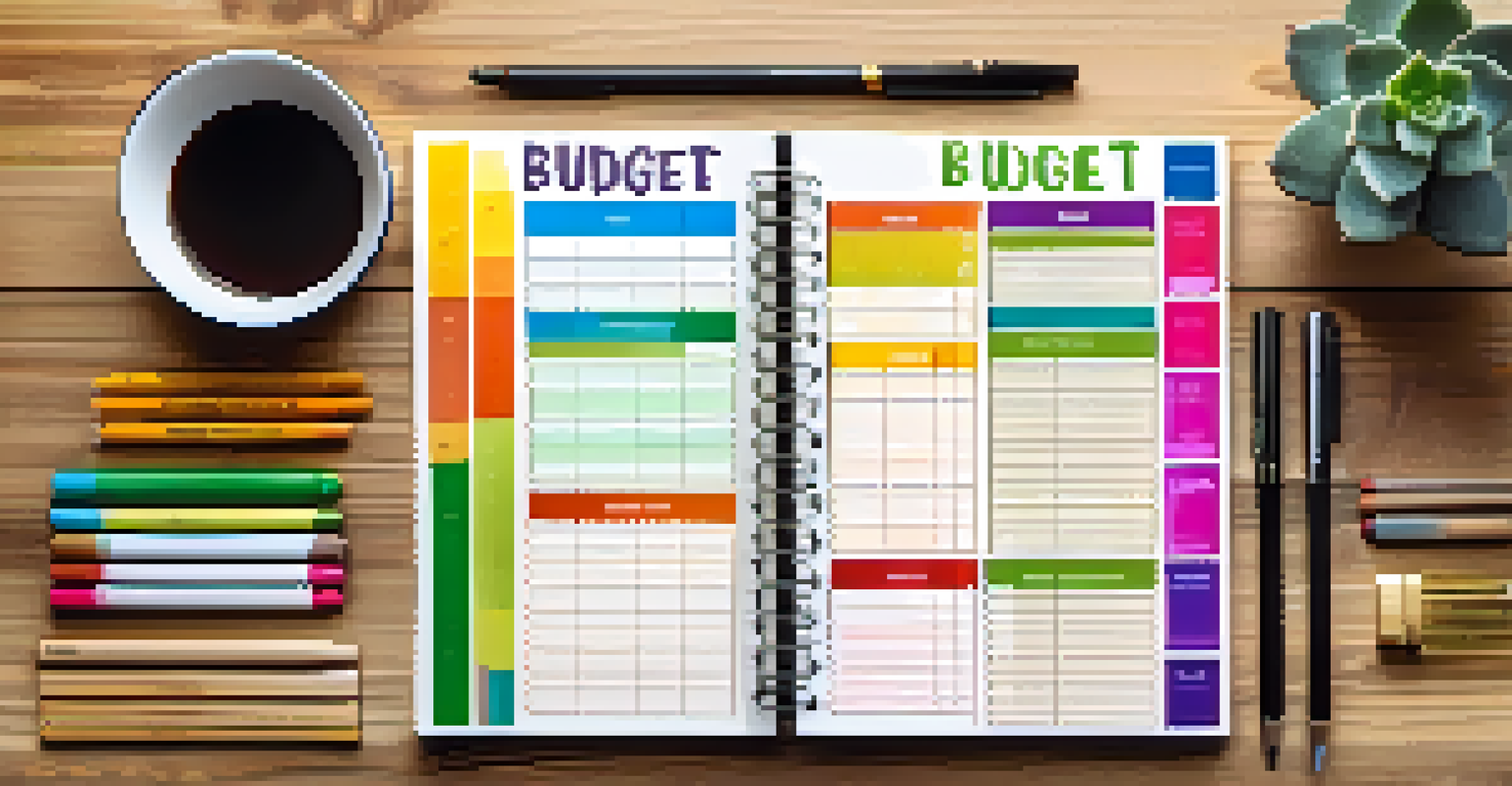Top 10 Tips for Improving Your Financial Health Today

Understand Your Current Financial Situation
Before you can improve your financial health, it's essential to know where you stand. Take stock of your income, expenses, debts, and savings. This overview will give you a clearer picture and help you identify areas that need attention.
A budget is telling your money where to go instead of wondering where it went.
You might consider using budgeting tools or apps to simplify this process. For example, tracking your spending for a month can reveal surprising patterns, like that coffee shop habit that adds up quickly. Understanding your financial landscape lays the foundation for effective planning.
Once you have a grasp on your finances, you can set realistic goals. Whether it's saving for a vacation or paying off a credit card, knowing your starting point will guide you toward your objectives.
Create a Realistic Budget You Can Stick To
Creating a budget is like drawing a roadmap for your financial journey. It helps you allocate your income effectively and keep your spending in check. Start by listing all your sources of income and fixed expenses, then see what’s left for discretionary spending.

Make sure your budget reflects your lifestyle and priorities. If you love dining out, for instance, allocate a portion of your budget to that without guilt. The key is to find a balance that allows for enjoyment while still saving and paying off debt.
Assess Your Financial Health
Understanding your income, expenses, and debts is crucial for setting realistic financial goals.
Review and adjust your budget regularly. Life changes, and so should your budget. By keeping it flexible, you ensure it remains a useful tool rather than a restrictive chore.
Build an Emergency Fund for Unexpected Expenses
An emergency fund acts as a financial safety net, protecting you from unexpected expenses like medical emergencies or car repairs. Aim for at least three to six months' worth of living expenses saved. While it may seem daunting, starting small is perfectly fine.
The best time to plant a tree was twenty years ago. The second best time is now.
You can begin by setting aside a little money each month, treating it like a bill. Automating your savings can make this process easier, ensuring you consistently contribute without having to think about it.
Having this cushion not only reduces stress but also prevents you from relying on credit cards or loans during tough times. It empowers you to handle life's surprises with confidence.
Pay Off High-Interest Debt First
High-interest debt, like credit card debt, can be a significant financial burden. It often grows faster than you can pay it off, leading to a cycle of stress and anxiety. Prioritizing these debts is crucial for improving your financial health.
Consider using the snowball method—paying off your smallest debts first for quick wins—or the avalanche method, which focuses on the highest interest rates. Both strategies can help you stay motivated and make progress.
Create a Flexible Budget
A well-structured budget helps you manage your spending while allowing for enjoyment and savings.
Once these debts are cleared, you'll find more freedom in your budget. You can redirect those payments towards savings or investments, setting you up for a brighter financial future.
Invest in Your Future with Retirement Accounts
Investing in retirement accounts is a smart way to ensure financial stability later in life. Whether it's a 401(k), IRA, or other options, these accounts often come with tax advantages that can significantly boost your savings.
If your employer offers a retirement plan with a matching contribution, take full advantage of it. It's essentially free money that can accelerate your savings growth. Even small contributions can add up over time, thanks to compound interest.
Starting early is key. The sooner you begin investing, the more time your money has to grow. Think of it as planting a seed—nurture it now, and you'll reap the rewards later.
Educate Yourself About Personal Finance
Knowledge is power, especially when it comes to managing your finances. Take time to learn about budgeting, investing, and saving through books, podcasts, or online courses. The more informed you are, the better decisions you'll make.
Consider following reputable financial blogs or influencers who break down complex topics into relatable advice. Engaging with a community of like-minded individuals can also provide support and motivation on your journey.
Build an Emergency Fund
Having a financial cushion protects you from unexpected expenses and reduces reliance on credit.
As you learn, don't hesitate to ask questions or seek advice. Financial literacy is an ongoing process, and every bit of knowledge you gain can lead to better financial choices.
Review Your Financial Goals Regularly
Setting financial goals is just the beginning; regularly reviewing them is crucial for staying on track. Life circumstances change, and your goals may need to be adjusted accordingly. Whether it's saving for a house or planning a vacation, check in on your progress periodically.
Use this time to celebrate small wins along the way—each step forward is a reason to be proud. Adjust your strategies if you find certain goals are slipping away; flexibility is key to maintaining momentum.

By keeping your goals in sight, you reinforce your motivation and commitment. Visual reminders, like a vision board, can be a helpful tool to keep your aspirations alive and in focus.